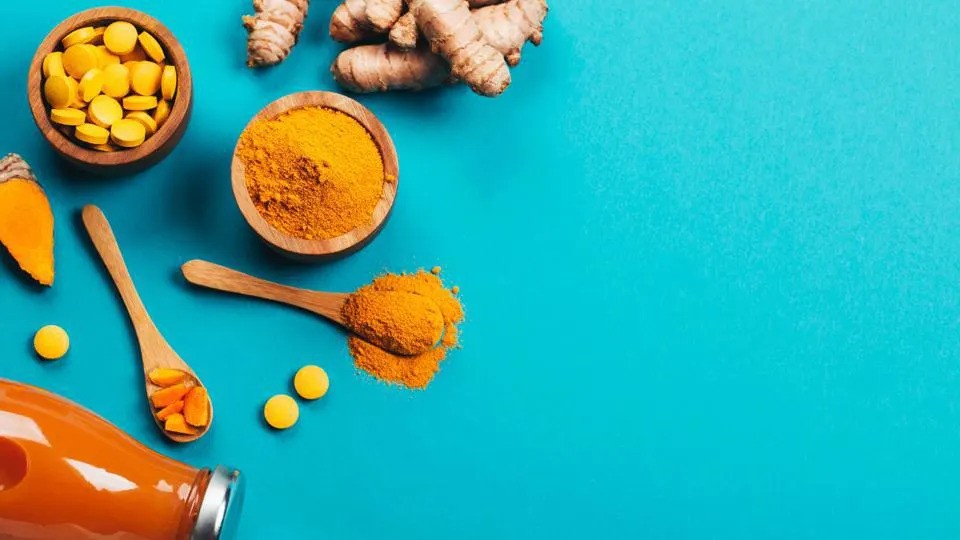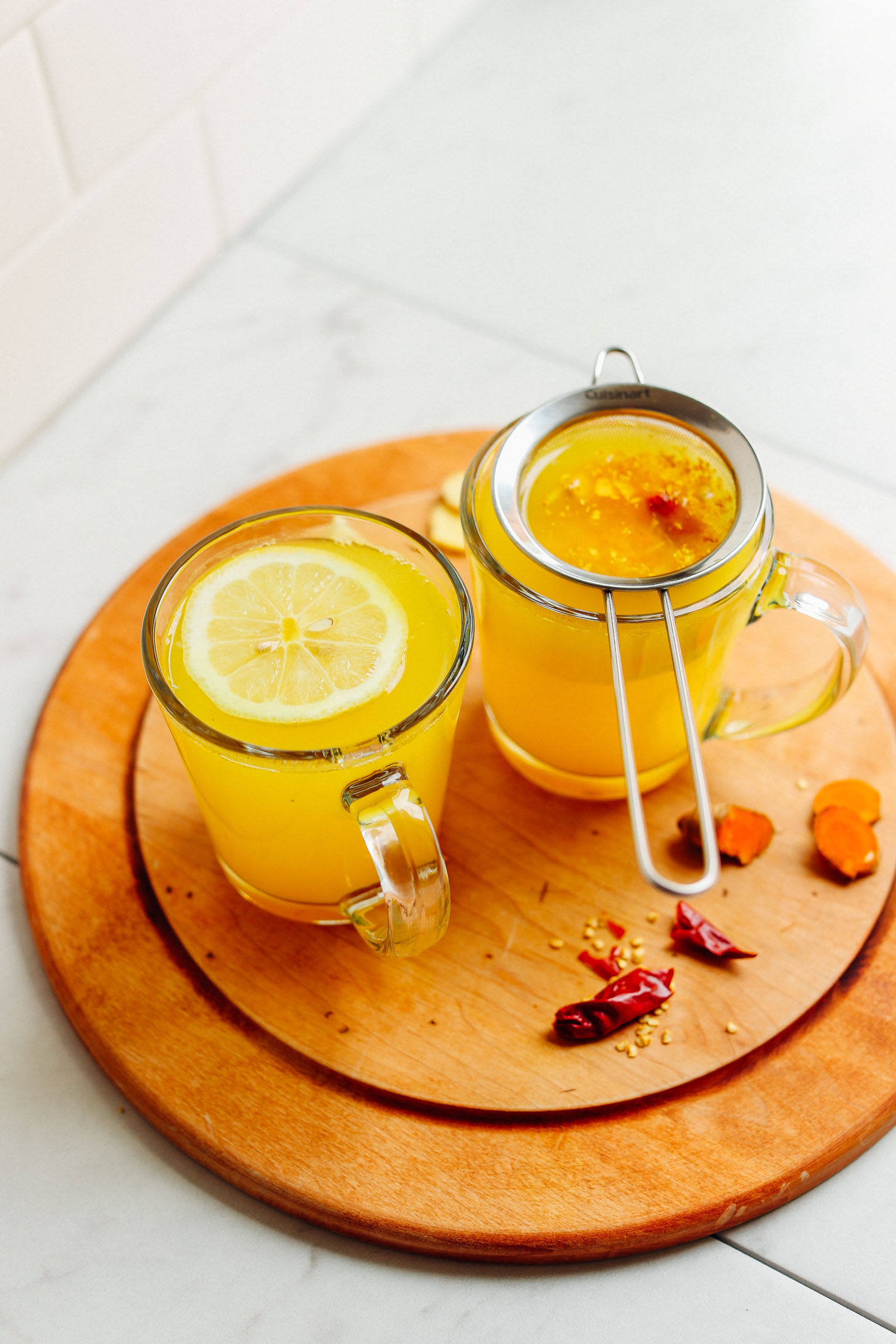Turmeric And Inflammation Reduction - From Spice Rack To Medicine Cabinet
This article delves into the world of turmeric and inflammation reduction, exploring the science behind this ancient spice's ability to soothe inflammation and promote overall well-being.
Author:James PierceReviewer:Karan EmeryMar 07, 202482 Shares20.4K Views

Turmeric, with its vibrant golden hue and distinctive earthy aroma, is more than just a spice found in kitchen cabinets. Beyond its culinary appeal, turmeric has gained recognition for its potential to tackle a common health concern: inflammation.
Inflammation, the body's natural response to injury or infection, can become problematic when it persists for too long, leading to various health issues. This article delves into the world of turmeric and inflammation reduction,exploring the science behind this ancient spice's ability to soothe inflammation and promote overall well-being.
Inflammation Causes And Triggers
Inflammation happens when our body's defense system reacts to things like injuries, infections, or harmful stuff. It's a natural response, but if it goes on for too long, it can cause problems. Let's look at what can start this inflammation:
- Infection -Sometimes, bad things like bacteria, viruses, or fungi can make our body's defense system kick in, causing inflammation.
- Injury And Tissue Damage -If we get hurt or something damages our body, like a cut or a bruise, inflammation helps us heal.
- Autoimmune Disorders -In some cases, our immune system, which normally protects us, can get confused and attack our own healthy parts, leading to ongoing inflammation.
- Chronic Diseases -Some long-term health issues like diabetes or heart problems can keep the body in a constant state of mild inflammation.
- Environmental Factors -Breathing in bad air or being around harmful stuff in the environment can make our body react with inflammation.
- Poor Diet -Eating too much unhealthy food, like sugary or processed things, might cause inflammation. On the other hand, eating good stuff like fruits and healthy fats can help fight it.
- Stress -When we're stressed a lot, our body can release chemicals that lead to inflammation.
- Lifestyle Factors -Not moving around much can cause inflammation. But being active and doing exercise can actually help reduce it.
- Genetics -Sometimes, it's in our genes. Our family history can make us more likely to have inflammation issues.
- Age -As we get older, our bodies might naturally have a bit of inflammation, and this is called "inflammaging.
The Magic Of Curcumin
Turmeric's secret weapon against inflammation is a special ingredient called curcumin. Picture it like the superhero of the spice, it gives turmeric its bright color and is the reason why it's more than just a kitchen staple.
Curcumin is like the boss in charge of the anti-inflammatory action. Imagine it as a shield that protects your body from inflammation's not-so-friendly effects. What's even cooler is that studies say curcumin can be as powerful as some medicines that fight inflammation, but it's like a superhero without any sneaky side effects.
How Turmeric Fights Inflammation
Turmeric fights inflammation by acting like a shield against the molecules that start the inflammation process in our bodies. It's like putting up a barrier that stops inflammation right at its source. This means that turmeric works deep down at the tiny molecular level to keep inflammation in check. Because of this, turmeric becomes a natural and powerful way to battle long-lasting inflammation, helping us feel better overall.
Mechanisms Of Action
- Anti-Bad Stuff Power - Imagine our body has tiny superheroes called antioxidants. They fight the bad guys known as free radicals that can cause inflammation. So, by having lots of antioxidants, our body becomes a fortress against inflammation.
- Calm Down Signals - There's a messaging system in our body that tells it when to chill out. Some natural substances, like omega-3 fatty acids, send these messages, telling the inflammation to slow down and not overreact.
- Blocking Trouble-Makers - There are trouble-makers called cytokines that can start inflammation. Certain components in our body, including those found in turmeric, can be like bouncers at a party, they block these trouble-makers and keep the situation under control.
- Stopping Communication Errors - Sometimes, there are mix-ups in communication among cells. Substances in certain foods, like turmeric's curcumin, can step in and fix these communication errors, preventing unnecessary inflammation.
- Pacifying The Fighters - Inflammation involves fighters called immune cells. While they're crucial, they can get too enthusiastic. Certain compounds, such as curcumin in turmeric, can calm them down, ensuring they fight the right battles without causing too much commotion.
- Repair Crew Activation - Inflammation is a bit like a repair crew rushing to fix a problem. Once the issue is resolved, it's time for them to chill. Substances in turmeric help in this process, ensuring the repair crew knows when to go back to their resting state.
Ways To Incorporate Turmeric
Now that we understand the science behind turmeric's inflammation reduction, let's talk about how to make it a part of our daily lives:
- Golden Milk -A popular and delicious way to consume turmeric is by making golden milk. Simply mix turmeric with warm milk and add a dash of honey for flavor.
- Curry Delight -Turmeric is a staple in many curry recipes. Adding it to your homemade curries not only enhances flavor but also boosts the dish's health benefits.
- Turmeric Tea -Brewing a cup of turmeric tea is a soothing way to enjoy the spice. You can find ready-made turmeric tea bags or make your own by steeping turmeric powder in hot water.
- Supplements -For those who find it challenging to incorporate turmeric into their diet, supplements are available. However, it's crucial to consult with a healthcare professional before adding any new supplements to your routine.
Turmeric And Inflammation Reduction - FAQs
How Much Turmeric Should I Take To Reduce Inflammation?
500 mg to 2,000 mg
Generally speaking, a dose of 500 mg to 2,000 mg of turmeric is usually recommended. This is based on the dosages used in studies. Look for products that list the actual amount of curcumin in the supplement for best results. Doses of over 8 grams of curcumin per day are not recommended due to the risk of side effects.
What Happens To Your Body When You Take Turmeric Everyday?
Turmeric — and especially its most active compound, curcumin — has many scientifically proven health benefits, such as the potential to improve heart health and prevent Alzheimer's and cancer. It's a potent anti-inflammatory and antioxidant. It may also help improve symptoms of depression and arthritis.
What Happens If You Drink Warm Turmeric Water Every Morning On Empty Stomach?
Drinking warm turmeric water on an empty stomach in the morning may help with weight loss in a few ways. Turmeric contains a compound called curcumin, which has anti-inflammatory and antioxidant properties. Curcumin can help to reduce inflammation in the body, which can lead to weight loss.
Final Thoughts
In the realm of natural remedies, turmeric and inflammation reduction complements each other. Turmeric is a golden warrior against inflammation. From the aromatic curries to the warm embrace of golden milk, this humble spice has woven itself into the fabric of both culinary traditions and holistic health practices.
Remember, while turmeric adds flavor to your dishes, it also brings potential benefits for your well-being. Embracing this spice, whether through tasty recipes or thoughtful supplementation, may contribute to the harmonious symphony of a healthier, inflammation-free life. So, let turmeric be more than just a kitchen companion; let it be your ally in the journey towards wellness.

James Pierce
Author

Karan Emery
Reviewer
Latest Articles
Popular Articles
